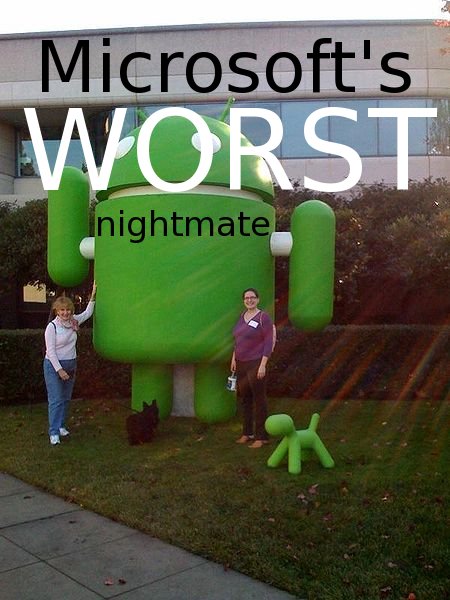

Original by Swampyank, licensed under the Creative Commons Attribution-Share Alike 3.0 Unported licence.
THE DAYS of Microsoft moles like Belluzo are long gone, but this doesn't mean that new moles no longer emerge from the ground. One of several new examples is the current CEO of Nokia, whose job seems to be to jab. Microsoft's machinations are not victimless because a lot of people lose their job and innovation is held back. One of our readers remarked on the effect on Qt, which is crucial for KDE:
One reason I had for awhile considered cmake so strongly in GNU Telephony is that I choose to experiment with using Qt to build applications, and at the time I thought it rather difficult to build QT applications under autconf/automake. A week ago I revisited this question on my own, and found I was actually wrong about this.
My interest in using Qt actually was from the period immediately prior to when Elop joined Nokia as CEO and then, much like Belluzo did to SGI, proceeded defraud the shareholders, employees, and customers of Nokia for the exclusive benefit of Microsoft and one presumes for his own personal gain. However, whatever his personal, and what I do happen to believe as being purely sociopathic, motives may be, it is very clear that Qt itself, with the help of the KDE foundation, and even MeeGO which I am less interested in, but even that, with the help of many others, would and do continue to survive and even thrive, and it matters not whether Nokia continues as part of that process or not in the future. This is just one real tangible benefit of freedom, that tools which you learn and use cannot be then taken away by either arbitrary or criminal actions. There are of course many other benefits to true software freedom as well.
Giesecke & Devrient's nano-SIM design is fueling quite the standards battle over in Europe, with Apple sitting in one corner, and the troika of Motorola, Nokia and RIM looming in the other. That's according to the Financial Times, which reports today that Cupertino is leading a charge to push its own nano-SIM proposal through Europe's standards body, ETSI, much to the chagrin of its competitors. According to FT's sources,
Instead of extracting billions from Google for violating its Java software patents in Android, Oracle will be lucky to get over a $100-million from its intellectual property (IP) lawsuit. That’s chump change by mega-company standards. Taking into consideration the legal costs, Oracle could have made more money if it had just offered Google an open-ended Java license in the first place. Larry Ellison, Oracle’s God-King and CEO, will have to wait another year before buying the sharks with lasers on their heads to guard his mega-yacht.
In a ruling yesterday, US Seventh Circuit Court of Appeals Judge Richard Posner ordered that Apple should not be allowed to see the papers it had requested.
"The motion is vague and overbroad and Motorola's objections are persuasive," Bloomberg quoted Posner as stating. The mobile phone maker's opposition to Apple's March 16 demand was filed under seal.
A former Nokia executive is calling the Finnish cell phone maker's Windows Phone strategy "a certain road to death," according to his analysis of 18 months of UK market share data.
Tomi Ahonen, a very prominent voice in the mobile ecosystem, and former Segmentation Manager with Nokia, posted a scathing article decrying the Nokia and Microsoft partnership falling far short of expectations.